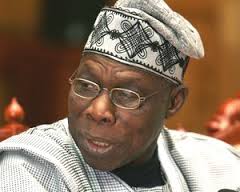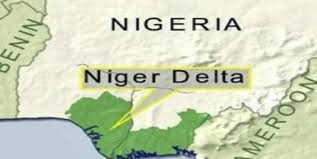President Olusegun Obasanjo has offered some insight into his failed bid for the coveted office of the Secretary General of the United Nations in 1991.
Obasanjo, who had then ruled Nigeria from 1976 to October 1979, was put up by the Nigerian military leader General Ibrahim Badamosi Babangida for the post, which no African had occupied by then.
Obasanjo on Silverbird’s Saturday magazine show, The Lola Show, blamed his failed bid on the intrigues of the British government then. The former Nigerian leader, who was to rule over Nigeria again from 1999 to 2007, believes that the Nigeria’s former colonial masters were instrumental to scuttling his bid because of the role he played in the fight against the apartheid regime in South Africa.
“You know that British people do not forget easily,” the former President said.
He also revealed how Egypt sabotaged the effort of the Nigerian government to push his case. According to him, Nigeria had sent emissaries to former President Hossni Mubarak to canvass his support for Nigeria’s candidacy, but rather than offer that support he tapped his then Assistant foreign secretary Boutous Boutrous Ghali to contest for the same UN position.
Incidentally, it was the same Ghali which eventually emerged to occupy the top position in the United Nations.
Besides, the reasons offered by Obasanjo, THE RAINBOW can authoritatively report that his bid was not helped by the huge swathe of opposition at home.
Many Nigerians believed that the former president lacked the democratic credentials, both by disposition and experience, to occupy such global institution.
The likes of Professor Wole Soyinka, late Gani Fawehinmi, Femi Falana, and many across the media, academia and human society organizations were opposed to his bid.
It will be recalled that Gani and Falana produced a pamphlet detailing the factors that made Obasanjo inappropriate for the post of UN Secretary General, which they submitted to the UN Secretary-General’s Office in New York and other UN offices in other countries.
One of their main points in the pamphlet was that Obasanjo had a detention camp on his farm, where he was detaining people illegally. And of course, that was then.
BREAKING NEWS
- Woman who accused Biden of inappropriate touching says she supports him as the ‘obvious choice’ to defeat Trump
- Ruiz defeat made me a smarter fighter, says Anthony Joshua
- CJN Ariwoola demands justice, equity from Tinubu, other West African leaders
- Globacom launches SME In A Box to ease business hassles
- TRIBUTE – Ghali Na’Abba: Salute to an Avatar of Democracy
- FG to compensate Abuja indigenes with N825.819bn for 2nd runway
- Sit-at-home enforcers killed 250 people in 2 years — Ohanaeze
- COUP: Nigeria cuts power supply to Niger Republic
- APC NEC to decide fate of NWC members Thursday
- FG Files Contempt Suit Against NLC, TUC Over Protests
- IPAC Faults Nomination Of Ex-Governors As Ministers
©2015 TheRainbowOnline. Developed By Zetatronix














